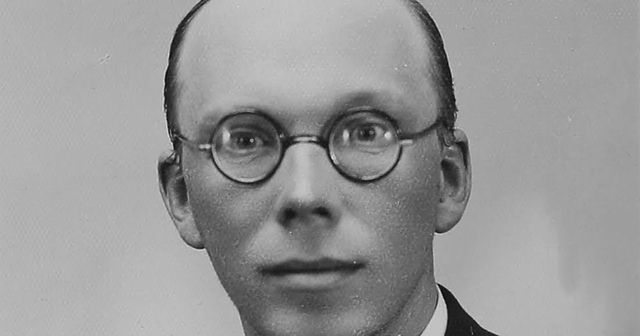
So runs the second petition of a prayer, which—according to reports already available in the 1950s—had issued forth from Apparitions of the Blessed Virgin in the Netherlands.
Degeneration, disaster, war —Valentin Tomberg expressed profound concern for these things during the 1950s and indeed throughout his entire life. For one finds continual expression of this, in both his pre-Catholic and Catholic writings.
Now, in his Catholic works, such concern is perhaps nowhere more apparent than his little known 1940’s legal-political theses. Therein he continuously emphasised the degeneration of human society in recent centuries and predicts catastrophe—unless Christian Order can be re-established in the West, at least.
Later in his 1960s Catholic works, an explicit invocation of catastrophic danger is far less apparent (although it is not absent).
However, there remains the continued concern with degeneration: for a world “drowned in utilitarianism, materialism, industrialism, technologism, biologism and psychologism” as he writes in his Magnum Opus, for a world becoming ever more automatic and mechanical in spirit.
Now these 1960s works also repeatedly emphasise Tomberg’s devotion to the Blessed Virgin.
Given Tomberg’s profound concern with degeneration and his veneration of the Virgin, it is unsurprising that he should take a particular interest in reports of the Virgin warning of ‘degeneration, disaster and war’.
Moreover, the Virgin appeared to speak in terms consonant with Tomberg’s legal-political thrust: the need to re-establish Christian Order. And indeed, the need for Rome to act in order to re-establish Christendom in the world.
And so it happened that around 1956, Valentin Tomberg made a trip to the Netherlands to investigate the nature of these Apparitions.
And in a 1956 letter to his ‘brother of the heart’ Ernst von Hippel, he reported his conclusions – from which we offer a rough translation:
In short: we made sure at this place, that it is a matter of a genuine and real revelation of the Holy Virgin and that the message and reports conveyed there are genuine and true …
I understand – after everything – this, in such a way that, as at that time in Lourdes the ‘Immaculate Conception’ brought a healing source for the individual illnesses of humans to effectiveness, now it is a matter for the development of a healing source for the diseases of the peoples by the “Mother of all peoples”.
There is much concern around peace in the world, but where is the power, the substance of Peace? Now it streams out into humanity: She is the Mother of all peoples. Therefore, it is not a matter of political or other measures, but a – how shall I say it? – magical action of peace, as a direct contrast to Moscow´s measures to bring about peace and everyone, who participates in this action with thought and prayer, helps the flowing, spreading-out of its effect.
Private letter, quoted in Heckmann and Frensch, Valentin Tomberg: Leben, Werk, Wirkung, p. .
We shall turn in much more depth to the Apparitions in the Netherlands, but before we do, let us note once more Tomberg’s ongoing concern for the threat to peace. While the words above come from 1956, we find the same concern repeated in correspondence from the late 1960s (that we also recently quoted here):
Peace is in great danger. The nature of this danger is not so much rampant China, the embittered Arabs, the plans of Russia … the aimless war of Vietnam – no … Is not the whirlwind which was caused by [de Gaulle’s pro-Quebec declarations] an unmistakeable sign that the inclination to see and judge clearly is vanishing … A drunken anger has suddenly spread everywhere.
An atmosphere of drunkenness exists … And this is the danger. This atmosphere is what makes Maria [Tomberg’s wife] and myself ill. We are not well health-wise – like with poisoned people.
Private letter, quoted in Heckmann and Frensch, Valentin Tomberg: Leben, Werk, Wirkung, p. 468-69.
Here Tomberg is speaking of feeling poisoned by the revolutionary atmosphere of the late 1960s and this may help to give the reader further context for his conversion to Catholicism:
It is thanks to the Church that we have air to breathe and that we have a place of shelter and refuge in this world of materialism, imperialism, nationalism, technologism, biologism and psychologism …
It is in so far that the Church lives that we live. The church bells once reduced to silence, all human voices desiring to serve the glory of God will also be reduced to silence. We live and we die with the Church.
Because in order to live, we need air to breathe; we need the atmosphere of piety, sacrifice, and appreciation of the invisible as a higher reality.
This air, this atmosphere in the world, exists in the world only by grace of the Church. Without it Hermeticism —indeed, every idealistic philosophy and all metaphysical idealism —would be drowned in utilitarianism, materialism, industrialism, technologism, biologism and psychologism. Dear Unknown Friend, imagine to yourself a world without the Church.
Imagine a world of factories, clubs, sports, political meetings, utilitarian universities, utilitarian arts or recreations—in which you would hear not a single word of praise for the Holy Trinity or of benediction in its name. Imagine to yourself a world in which you would never hear a human voice say: “Gloria Patria, et Filio, et Spiritui Sancto, sicut erat in principio, et nunc, et semper, et in saecula saeculorum“, or “Benedicat vos omnipotent Deus, Pater, Filius et Spiritus Sanctus“.
A world without worship and without benediction . . . how deprived of ozone the psychic and spiritual atmosphere would then be, and how empty and cold it would be!”
Anonymous (Valentin Tomberg) Meditations on the Tarot, p. 188-89.
Yes, the spectre of a degenerated world – ever more cold and mechanical – looms across the entirety of Tomberg’s corpus of writings.
And thus he issued a powerful call to turn to the Church. And thus also, he encouraged devotion to the Blessed Virgin.
And writing in the 1960s, here is how he spoke likewise of the Apparitions of Fatima, Lourdes, La Salette, Beauraing – as well as more recently, the Netherlands:
There is not a shadow of doubt for anyone who takes the spiritual life of mankind seriously, even if he is short of authentic spiritual experience, that the Blessed Virgin is not an ideal only, nor a mental image only, nor an archetype of the unconscious (of depth-psychology), nor, lastly, an occultistic egregore, but rather a concrete and living individuality – like you or I – who loves, suffers, and rejoices.
It is not only the children of Fatima, the child Bernadette at Lourdes, the children of La Salette-Fallavaux, and the children of Beauraing in Belgium, who have witnessed the “Lady”, but also innumerable adults across the centuries, including our own.
Numerous meetings still remain intimate and undivulged (I know of three series of such meetings, including one in Tokyo, Japan), but one series of meetings with the Blessed Virgin took place recently in Amsterdam in the Netherlands, where the Blessed Virgin manifested herself as the “Lady of All nations” (de Vrouwe van alle Volkeren) and inaugurated a prayer movement with a special prayer, with a view to saving all nations from “degeneration, disaster and war” …
I may add that I went to Amsterdam in order to make as scrupulous an investigation as possible, and the result of this investigation there (confirmed subsequently by experiences of a personal nature) was complete certainty, not only with respect to the authenticity of the experiences of the seer (a woman forty years of age) but also with respect to the authenticity of the subject of these experiences.
In writing of these things, I can only agree with the sentiment expressed by Rabbi Simeon in the Zohar, who exclaimed:
‘Woe to me if I tell and woe to me if I do not tell!
If I tell, then the wicked will know how to worship their master; and if I do not tell, then the companions will be left in ignorance of this discovery! ‘
Anonymous (Valentin Tomberg) Meditations on the Tarot, p. 280.

Woe to Valentin Tomberg, if he tells. This admission alone may give one much pause for reflexion.
Be that as it may, we have decided to offer a certain exploration of the matter of the Lady of All Nations at this site and of the Dutch seer that Tomberg encountered in the Netherlands: Ida Peerdeman.
Ida Peerdeman lived in Amsterdam. She reported Apparitions of the Blessed Virgin from 1945 to 1959 (and one final time in 1981).
After the Apparitions ceased in 1959, Peerdeman also reported a series of mystical visions and experiences that she had during the Holy Mass. These have been simply called her Eucharistic Experiences – though within those experiences she still hears the Voice of the Lady, even if she no longer sees her.
Two books feature Ida Peerdaman’s visionary experience.
The Messages of the Lady of All Nations covers the period from 1945 till 1959 when the principal Apparitions occurred.
Eucharistic Experiences covers her later experience – which particularly interests us for the degeneration she sees in the post-Vatican II Church.
We offer in-depth reviews of each book, with extensive quotation.
We hope that this quotation can serve to illumine Valentin Tomberg’s own concerns – and why he both took trouble to travel to the Netherlands in 1956 and to publicly report his experiences there, yet saying woe to me if I tell …
As I say, there is hope to illumine Tomberg’s concerns. As we have said above, Tomberg’s political thought runs very much in tandem with the message of the Apparitions
That political thinking stresses the notion that Christianity is endangered by the degeneration of modern thinking.
Indeed, Tomberg’s first legal work was called Degeneration and Regeneration of Jurisprudence and the core idea is that jurisprudence has degenerated through being stripped of Divine and Natural Law.
Tomberg writes that regeneration through reintegration of Divine Law is desperately needed and will go so far as to call for legal and political structures to defend Christianity and Christian Order.
The modern mind is likely to be bowled over by the notions expressed in Tomberg’s legal works. But from Tomberg’s perspective, this was a mind which had all-too-frequently already succumbed to a crippling degeneration.
In any event, the reader who carefully compares Ida Peerdeman’s reports of the Virgin’s warnings regarding degeneration with Tomberg’s legal-poltical thought may find striking accords between them.
My review for the Messages is here, followed by my review for the Eucharistic Experiences.

I confess to hoping that some people will read them in that order and make the comparison I suggest.
As a final note, I should say I have principally addressed this weblog entry to those familiar with Valentin Tomberg.
But that is simply the limited perspective that we take in this particular isolated entry. Many other perspectives are of course possible – for I believe that Ida Peerdeman’s experiences have much to say to people who have never heard of Tomberg.
Indeed, I believe they have much to say to Catholic Traditionalists – even if many such traditionalists are suspicious of these Apparitions, which were only recently approved by the modern Church in 2002.
And so while my focus here is mainly on Tomberg, I hope that other readers unfamiliar with Tomberg will consider these reviews.
And I would say this particularly to Traditional Catholic, for some of these will may find very much of interest indeed – particularly in the Eucharistic Experiences which has much to say about the currents of degeneration that occurred within the Second Vatican Council and its aftermath.
Foreword for Monarchy by Roger Buck
Buying Books at Amazon Through These Links Gives Us a Commission. This Supports Our Apostolate. Thank You if You Can Help Us Like This!

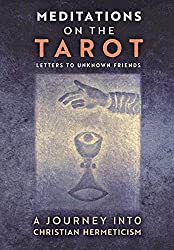
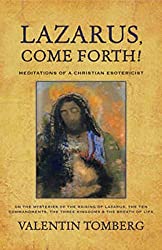
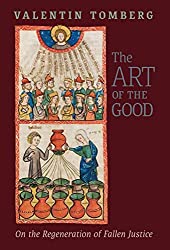
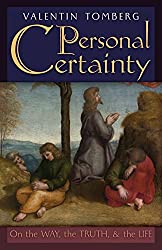




Comments
comments are currently closed
6 responses to “On Degeneration, Disaster and War: Valentin Tomberg and the Lady of All Nations”
Hi Roger,
Thanks for this post – by the following quote, is it being suggested that individual spritiual action (Magic…thought and prayer) is more effective than (or as effective than, or a necessary companion to) collective action (protest for reform) in bringing about political change (peace)? Is there more info on that idea – does Tomberg elaborate in MOT?
MDJ
Quote: There is much concern around peace in the world, but where is the power, the substance of Peace? Now it streams out into humanity: She is the Mother of all peoples. Therefore, it is not a matter of political or other measures, but a – how shall I say it? – magical action of peace, as a direct contrast to Moscow´s measures to bring about peace and everyone, who participates in this action with thought and prayer, helps the flowing, spreading-out of its effect.”
Mdj … thank you. I am always grateful to hear when those out there reading this weblog take the plunge and comment (I can see from internet analytics that a regular readership exists for this site, but it is largely invisible to me).
In response to your question, I would say that Tomberg comes back to this very theme again and again and again. There is a pdf version of the book out there on the web, and by using the pdf version, you can easily look up relevant words like ‘prayer’.
Meanwhile, here is a quote which sprang to mind immediately in response to your question. This is from pg 284. I am breaking up the paragraphs, because short paragraphs and lots of white space are so helpful reading from a screen …
Also the profound nature of what follows is served by white space after each sentence, which can facilitate each sentence to be pondered …
‘Hermeticism, i.e. Hermeticism cultivated within the inner forum of consciousness, is called to play a role —whether visible or invisible is of little importance —as a link in each individual’s inner forum of consciousness, between what is given by the two “eyes”.
It can certainly be an agent in establishing coordination of the two “eyes”, between culture and civilisation, between spirituality and progress, between religion and science.
It can act as a healing agent in this singular contemporary illness (which is a kind of schizophrenia) of the dissociation between spirituality and intellectuality—but it can do so only in the inner forum of each individually, in order to guard against arrogating functions of general significance belonging properly to Church and Academia.
Briefly, the role which it is called to play is anonymous and intimate, and is not provided with the means of the armoury of collectives, such as pamphlets, press, radio, television and congresses where a great din is made.
The magic of the constant work of service done in silence —this is what it is a matter of.
A secret, then? Not at all, for a private thing is not a secret thing. The private life is not a secret life. Silence as the essential condition for intimate work is in no way equivalent to a jealously guarded secret.
Just as Trappist monks maintain silence without anyone suspecting them of wanting to keep secrets, so is the community composed of Hermeticists scattered in the world in the right to be silent, in order to maintain the atmosphere of privacy essential for its work, without it being suspected of dark secrets.
Authentic spiritual life requires the inviolable sanctuary of privacy – which has nothing in common with “initiation secrets” or those of “secret societies”, whose secrets, furthermore, inevitably become “open secrets”.
There is much else like this in the book and I find time, I may add some more.
I will just say something in response to you’re asking about “collective action (protest for reform)” …
Tomberg seems to me very concerned about the destructive action which so often tragically results from revolution.
While his heart is ripped out I think by the horrific injustice we see everywhere around us, while his heart aches to see this injustice, he says much about revolutions giving way to orgies of anger and violence, which do not help …
And yet the above quote does indicate the need for collective action, as when he speaks of not “arrogating functions of general significance belonging properly to Church and Academia.”
Tomberg took the Western institutions of Church and Academia, so seriously …
And saw that there was a necessary work of prayer and sacrifice to continually aid these vast collective efforts.
Again, my warm thanks to you …
Hi Roger,
Thank you so much for this. Can you please explain what Tomberg meant by this?
‘Woe to me if I tell and woe to me if I do not tell!
If I tell, then the wicked will know how to worship their master; and if I do not tell, then the companions will be left in ignorance of this discovery! ‘
What wicked/which master? Who are the companions/ignorant of this discovery? What discovery?
All the best,
Elena
Dear Elena, thank you for all your very kind and searching comments and forgive me that I am slow. I do mean to respond to all of them.
Right now, I can just say something to this one …
You raise very good and indeed profound questions – ones for which I have no adequate answers.
What I can say however is that Meditations on the Tarot contains so, so much between the lines, inviting the reader to really listen to the many hints the author gives, without spelling things out explicitly.
We see from elsewhere in the book that the author takes the problem of evil, very, very seriously indeed – even though he does not wish to over-accentuate this problem, as he sees that such over-emphasis can ‘clip the wings’ … See for example his critique of Anthroposophists in the 15th letter which deals with evil.
But none of this is to deny that evil is at work and indeed works through powerful – and often secret – masters.
I take these lines to indicate that the author is very, very aware of such – but feels he cannot do more than hint at the gravity of the situation that he is witness to.
I believe that there are those who actively want to sabotage the working of Our Lady in the world, generating confusion and much worse. And I trust that the author is gravely aware of this and honestly and sincerely expresses his moral quandary.
His moral quandary – by this I mean he feels morally compelled to speak, but how much to speak and what?
What will be truly helpful? What will be dangerous?
Throughout the book, I think we feel Tomberg’s heart weighing such problems – and thus deciding to give the attentive reader hints for further contemplation – where he feels he cannot be explicit.
Again Elena, I really do warmly thank you for all your comments. I can be terribly slow sometimes, but I study each comment received and will not forget to respond.
Thank you, Roger, I really appreciate your reply. I do recall Tomberg not wishing to contemplate too much on evil, to avoid connecting to the source.
I can’t help but wonder of the prophesies? Isn’t the destruction of Christianity part of the process? Is it possible to prevent the coming of the beast? And the ensuing One World Order that he is due to reign over? Surely, this will enable the Second Coming of The Christ? Aren’t those that yield to the Love of Christ saved by the power of The Cross? Please forgive my ignorance, I feel pressed to understand.
I have taken refuge in the knowledge that it is part of the process towards completion. When Christ was crucified he said on the cross, ‘It is accomplished’. From that day forth the devil had limited time to reign and to complete his mission, before Christ would come again. To us this seems like time, and many have and will suffer until the prophesies are completed. But should we really be suffering?
There are times I feel that worrying and suffering is futile. And that trying to prevent the eventuality is going against God’s will; it is like trying to prevent the crucifixion of Christ. Judas was destined to betray Christ, and Peter likewise to deny him. Nothing could, and should have been done about this because if it were prevented we never would have been given ‘the way out of suffering’.
I am anticipating Christ’s arrival, with no idea if I will even know that he has arrived. My soul is tarnished, and my ways far from saintly. Should I miss him this time, I have hope that he will recognise me the next time he arrives, or forgive me upon my death.
Whilst I live, however, I am aware of the wayward ways of humanity, and the evil doings of men of stature. I choose not to ponder on these, because they only weaken my soul. I gain great strength from focusing on the solutions – prayer, hope, love and light. As an academic, I witnessed the analysis of mental illness, poverty, immigration, etc with little if any avail. The analysis merely yielded phd’s that ended up on a shelf somewhere. The tide continued to flow in the direction of destruction.
Ignoring it doesn’t make it go away either.
Working with solutions is the only thing I have found that actually appeases my soul, and provides any practical change. I am confused why Tomberg would suffer so much? And why he called out for the contingency of events that would eventually bring about the reign of our Lord? Please illuminate, if you can?
Elena
Dear Elena, again today I will only offer you a partial response – but I am not forgetting your other comments and will say more.
For now, let me begin with you observing:
‘Should we really be suffering? There are times I feel that worrying and suffering is futile.’
I would make a distinction here.
Worrying is always futile – though very human, understandable and forgivable!
Suffering however can be very different. While there is certainly neurotic and self-destructive suffering …
There is also creative suffering.
One might even say: the Mystery of Christianity is the Mystery of Creative Suffering.
In the most creative act imaginable, Jesus Christ suffers …
Now I hear you Elena, when you write:
‘As an academic, I witnessed the analysis of mental illness, poverty, immigration, etc with little if any avail.’
Again, I do not wish to deny neurotic, unproductive, uncreative, self-destructive misery …
Focussing on ‘prayer, hope, love and light’ as you say, is very important.
I would say that Tomberg does indeed write: do not focus on evil …
I believe that he would agree with what you write of prayer and hope.
At the same time, part of Christianity is willingness to bear the Cross of Christ, a deeply creative action which has nothing to do with neurosis. And Tomberg emphasises this carrying of the Cross.
You speak above of being:
‘aware of the wayward ways of humanity, and the evil doings of men of stature.’
And I think your heart is awake to world injustice, from this and other things that you write.
Now, while it is wise not to get overly caught in such things – for example the temptation many of us feel to rant or despair about injustice – nonetheless, feeling injustice in your heart, letting your heart weep is I would say, a creative suffering with the world.
Whereas ranting and despair – of which I haver certainly been guilty at times! – is a self-destructive suffering against the world.
That is all for now, but again I will be responding to your other comments Elena, for which I thank you warmly.